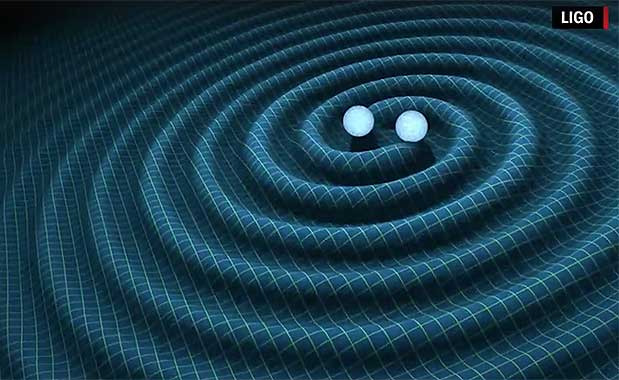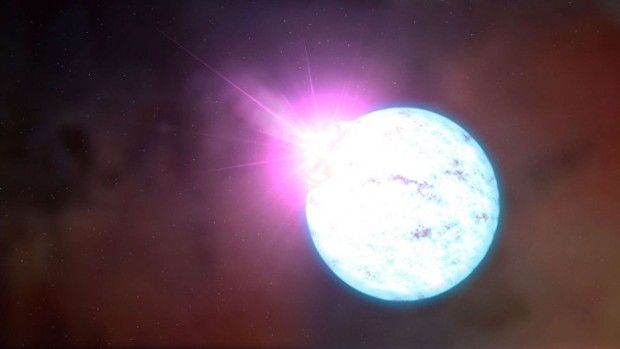Advertisement
Einstein’s Gravitational Waves Detected in Historic Scientific Milestone
| By Kenny Servera
Advertisement - Continue reading below


Theoretical physicist Albert Einstein’s General Theory of Relativity has been scientifically proven.
For the first time, scientists detected gravitational waves, 100 years after Einstein made his theory on the subject. In 1916, Einstein theorized that cataclysmic events in space would ripple the fabric of space in every direction, calling these ripples, gravitational waves. Originally, Einstein believed that we would not find any evidence of this, but years later scientists have now been able to conclusively show they exist.
The researchers concluded that they have found two black holes colliding with each other, creating a ripple in the space-time continuum. The collision occurred 1.3 billion light years from Earth.
In a press conference in Washington D.C., on Wednesday, California Institute of Technology physicist David Reitze was excited about the discovery and called it a scientific milestone.
“Ladies and gentlemen, we have detected gravitational waves. We did it,” Reitze concluded.
Louisiana State University physicist Gabriela Gonzalez echoed Reitze’s sentiment stating, “It’s been a very long road, but this is just the beginning.”
Researchers discovered the gravitational waves using giant laser detectors called the Laser Interferometer Gravitational-Wave Observatory (LIGO). The scientific instrument is used to detect small vibrations from passing gravitational waves. When scientists converted the waves into audio waves, they were able to listen to the sounds of two black holes colliding with each other.
MIT astrophysicist Nergis Mavalvala thinks that this could be a new tool for astrology, stating, “We are really witnessing the opening of a new tool for doing astronomy. We have turned on a new sense. We have been able to see and now we will be able to hear as well.”
Scientists announced that they first detected the gravitational waves on September 14, 2015.
With this huge discovery, researchers hope that this could shed some light on the universe, gaining more knowledge of black holes and protons in space, as well as open the doors to more theories on time travel and black holes. It is theorized that when you enter a black hole, you are sent backwards in time.
Scientists also said that studying gravitational waves may offer additional information on the universe. Black holes are notoriously difficult to study because they do not omit light and radio waves.
Advertisement - Continue reading below
Share
On Facebook
